The rise of the internet and social media has introduced unprecedented challenges into our lives. The issues range from addiction to poor time management, from skewed work-life balance to chronic backaches. Another aspect of our life the internet has infiltrated is our romantic relationships, apart from these platforms eating into couples’ quality time together, social media cheating has become a real risk.
While traditional forms of cheating were primarily associated with physical intimacy, social media has expanded the possibilities of betrayal. Emotional affairs take place through DMs, through intimate exchanges of photos or videos, and even by forming deep connections with strangers online. This has begun to redefine the boundaries of fidelity and trust within relationships, making it difficult to navigate through blurred lines.
In this article, we look at the expanse of the problem at hand and find out how to deal with it. By the end of the article, you should have answers to questions like:
- Is Facebook flirting cheating? My girlfriend is on it all the time
- Is it normal for your boyfriend to look at other women on Instagram?
- My husband compliments other women on social media, is it considered cheating?
- How can I see what my husband is looking at on the internet?
- What should I do if I find out my wife is having a virtual affair?
What Is Social Media Cheating
Table of Contents
Social media cheating or internet cheating is exactly what it sounds like. It is an act of engaging in romantic or sexual interactions with someone other than one’s partner through various social media platforms. According to the findings of the Pew Research Center, over 72% of the American population is on social media. These numbers are only increasing, directly affecting the social media cheating statistics.
Who needs dating sites for married people to be unfaithful in a relationship when you can just send a friend/follow request to the one who got away or slide into the DMs of an attractive stranger? But, has infidelity merely shifted from the physical realm to the digital? Or has there been an increase in the number of people cheating in relationships thanks to ease and opportunity? And more importantly, what is it about social media that makes it so easy to stray? The thing is:
- Accessibility: Social media platforms provide the possibility to interact with many more people in much less time, with much more ease (just a click of a button) than it would ever be possible to do in real life
- Privacy: It’s a fertile ground for individuals to create hidden online identities, allowing them to engage in shady behavior
- Anonymity: Moreover, anonymity on the internet allows even reserved and introverted people to feel confident about approaching other people
Now, it is important to note that blaming social media for trust issues in your relationship is not a healthy approach. SM is not inherently responsible for cheating. It is the choices and actions of individuals that lead to infidelity. Understanding the dynamics and impact of online affairs can help individuals and couples navigate the complexities of digital relationships.
The real work of building trust and maintaining healthy partnerships goes much deeper than avoiding SM platforms. If you find yourself wondering, “How can I see what my husband is looking at on the internet?” or “How can I track my wife’s online activities?” or “How do I check what my partner is doing online?”, your relationship clearly lacks the element of trust and you need to get to the root of your issues to be able to build a healthy bond. Once that’s taken care of, the risk of infidelity – virtual or physical – also reduces.
What is considered cheating on social media?
The most common questions people struggling with this issue face are:
- Is looking at pictures cheating?
- Is sending pictures cheating?
- Is saving pictures cheating?
- Is acting single on social media cheating?
- Is online flirting considered cheating?
- Is deleting messages considered cheating?
- If he hides you on social media, is your boyfriend cheating on you?
- Are all these signs of micro-cheating?
The point is, people struggle with a lot of self-doubt when it comes to accepting their suspicions of being cheated on, this leads to a lot of confusion or ambiguity about things that are considered cheating in a relationship. And those presented with an opportunity to cheat may use this very self-doubt and gray areas to give in to the temptation.
That’s why it’s crucial to define what is considered cheating in a relationship – offline or online. The yardstick of assessing whether a particular action qualifies as infidelity is pretty simple – even if you do not have a sexual/physical connection with someone other than your partner, engaging in a behavior that you wish to hide from them, breaks several tenets of a healthy relationship: communication, honesty, and trust. That amounts to cheating. Then there is another question, “Is online cheating really cheating?” We would like to reiterate what we just mentioned. Cheating is cheating, even if it is online.
Related Reading: Social Media And Relationships: Have We Isolated Ourselves To Find Company?
9 Social Media Habits That Can Lead To Infidelity
We now know how the accessibility, privacy, and anonymity of the internet can simply provide you with the opportunity to cheat, making it easier to engage in digital infidelity. Your reach is no longer limited to a friend’s friend or your partner’s acquaintance, or a coworker. The entire world is at your fingertips and you can connect with just about anyone from any part of the world.
However, this does not in any way mean that social media and cheating go hand in hand. Certain social media habits simply increase the chances of engaging in adulterous behavior online. Let’s take a look at what these are:
1. Spending too much time on social media
This is probably the most obvious but crucial piece of advice. Social media effects on relationships might not always be directly related to infidelity. Spending excessive amounts of time on social media can lead to neglect of one’s partner and relationship, creating an opportunity for emotional connections with others.
2. Engaging in secretive online behavior
Engaging in secretive behaviors such as using private messaging apps, deleting chat histories, deleting search history, deleting text messages, changing passwords, or hiding online interactions from a partner can be a red flag for potential infidelity via social media. If you are feeling the need to hide your activities from your spouse, it is clear that something is amiss, such as a lack of affection and intimacy. You need to talk to your spouse right away or else you will slowly inch your way toward internet cheating.
3. Flirty or inappropriate online interactions
Engaging in flirty or sexually suggestive conversations with others on social media platforms can blur the lines of fidelity and open the door to emotional or physical infidelity. This may include responding to, liking, commenting, saving, sharing, and engaging in any way with suggestive pictures or posts, or other similar social media flirting signs. Such behavior can easily be clubbed under micro-flirting and can eventually lead to adulterous behavior.
Related Reading: How To Confront A Cheater – 11 Expert Tips
4. Maintaining multiple social media accounts
Creating multiple social media accounts, especially ones that are kept hidden from a partner, can indicate a desire for secretive connections or interactions with others. Having fake profiles or fake accounts is one of the most common Facebook cheating signs that may lead to your partner catching you red-handed.
5. Seeking validation from people online
Relying on social media interactions with strangers or exes for validation, compliments, or emotional support can create a sense of emotional distance within a relationship and pave the way for emotional infidelity. Many people end up reconnecting with an ex online to see how well (or not) they have been doing to secretly feel good about themselves. This is unhealthy behavior, to say the least, and makes you feel stuck in the past.
6. Following or liking inappropriate content
Consistently following or liking explicit or provocative content on social media platforms may indicate a desire for sexual stimulation outside of the committed relationship, and is one of the most prevalent social media flirting signs. While you may think you are not yet engaging in adulterous behavior, you are not far from it.
Related Reading: Confession Story: Emotional Cheating Vs Friendship – The Blurry Line
7. Maintaining online dating profiles
Keeping active dating profiles on dating sites while being in a committed relationship is a clear indication of seeking potential romantic or sexual connections outside of the partnership. It couldn’t get clearer than this that you are tipping toward inappropriate behavior that may hurt your partner and your relationship if it were to come out in the open.
8. Sharing intimate or personal details
Sharing intimate or personal details about the relationship with strangers or online acquaintances can breach the trust and privacy within the partnership and lay the groundwork for emotional cheating. That married man you met online who totally gets how monotonous married life can get and whom you tell how your partner arrived home tired once again last night is not just an opportunity for you to vent. You are creating emotional intimacy with this person without the knowledge of your significant other and hence, engaging in emotional cheating.
9. Ignoring real life relationship boundaries in the virtual world
Social media boundaries in relationships are usually very specific to the partners’ social media usage. But, normal healthy relationship boundaries can work as a guide to how to behave online. Disregarding agreed-upon boundaries or crossing the line between platonic and romantic interactions on social media is not much different than doing so in the real world. Cozying up with someone online or bad-mouthing your partner to someone else over Insta DM is Instagram cheating! After all, these behaviors can create emotional connections that may evolve into infidelity.

How To Spot Social Media Cheating In Your Relationship?
Looking for signs your girlfriend is cheating on social media, or reasons to believe your boyfriend has a secret relationship online? No one here is booking a hotel room you can send your private investigator to, to fetch you intimate photos from. Then, how do you spot signs of an online affair and are they any different from signs of cheating? This is how:
1. Notice changes in social media usage patterns
Pay attention to any significant changes in your partner’s social media habits. A social media cheating spouse/partner will become secretive about their online activities, spend excessive amounts of time on social media, or consistently prioritize their virtual interactions over quality time with you. A sudden change in the way they spend time online could be a sign of potential social media infidelity.
Related Reading: 10 Questions To Ask Your Unfaithful Spouse
2. Look for hidden or secondary social media accounts
Check if your partner maintains multiple social media accounts that they keep hidden from you. Having secret profiles or using aliases can indicate a desire to engage in deceptive or illicit online interactions without your knowledge. This behavior indicates a clear connection between social media and infidelity.

3. Observe flirtatious or inappropriate interactions
Be vigilant of any flirty or sexually suggestive comments, messages, or interactions your partner engages in with others on social media. If you notice consistent patterns of inappropriate behavior, such as liking provocative posts or engaging in explicit conversations, or cheating text message codes, these may be a warning sign of internet infidelity.
Even coming across non-suggestive interaction that suggests that your partner is bonding with someone else online while growing distant from you can hit you in the stomach. This indicates emotional intimacy which ideally your partner should be sharing with you. Here is an emotional affair texting example:
- Sender: I have been looking at my phone all day long, waiting for your reaction to this!
- Recipient: Lol. Why?
- Sender: I don’t know. May be coz you get me?!
- Recipient: Haha. I know! I feel the same way
- Sender: I mean, we are alike in more ways than one
Related Reading: Is Sexting Cheating If You Are In A Relationship?
4. Notice growing emotional distance
Pay attention to changes in your partner’s emotional availability and openness. If they become emotionally distant, secretive about their online interactions, or reluctant to share their social media activities with you, it could indicate that they are fostering emotional connections with others outside the relationship. A lack of emotional connection in your own relationship can also indicate the same thing.
5. Trust your gut instincts and intuition
You always don’t need literal signs your girlfriend is cheating on social media or your boyfriend/partner/spouse is having a virtual affair. If there is one thing you can rely on, it’s your gut. Intuition can be a powerful indicator of potential social media infidelity. If you have a persistent feeling that something is amiss or that your partner is being unfaithful through social media, it is crucial to trust your instincts. Validate your concerns by gathering evidence and having an open and honest conversation with your partner about your suspicions.
Remember, while these signs can raise suspicions, they do not guarantee that an online affair is taking place. It is essential to approach the situation with empathy, open communication, and a willingness to work through any issues that may be affecting the relationship. If you find something fishy, it is essential to address this discovery with open communication and clear the air. A deeper understanding of your partner’s motives and behavior can resolve misunderstandings if there are any.

How To Deal with Social Media Cheating? 5 Tips
Discovering that a social media affair is happening in your relationship can be a challenging situation to navigate and can make you question what has been lacking in your relationship. While there could be underlying issues at play, social media and infidelity, unfortunately, make for an ideal mix for chronic cheaters or those with latent tendencies to cheat. Merely the opportunity to cheat or get attention or the lure of quenching boredom can make many people cross the line and betray their partners’ trust.
Infidelity via social media is, after all, one of the different types of cheating in a relationship and must be dealt with as such. Here are five tips on how to deal with it:
1. Confront the issue directly
Once you have observed Facebook cheating signs, suspect Snapchat cheating, or think your partner is Instagram DM cheating, it is crucial to address the issue directly. Initiate an open and honest conversation about your concerns, expressing how their behavior on social media has affected you and the relationship. Listen with an open mind. Maybe this has to do with a difference in value system, commitment levels, or understanding of infidelity. Talking openly can help bring you both on the same page.
2. Assess the relationship
Take time to reflect on the overall health of the relationship. Evaluate whether internet infidelity is indicative of deeper issues within the partnership. Consider factors such as trust, communication, and emotional connection. Assess whether both partners are willing to work toward rebuilding trust and addressing the underlying relationship problems.
3. Establish clear boundaries
Set clear boundaries regarding social media usage and behavior within the relationship. Discuss expectations around appropriate and inappropriate online interactions. Talk among yourself and see if you are both on the same page. Is following an NSFW account on Reddit, Reddit cheating? Is liking an old post of an ex considered Instagram cheating? Establishing social media boundaries in relationships can help rebuild trust and provide a framework for healthy digital behavior moving forward.
Related Reading: 15 Critical Boundaries In Marriage Experts Swear By
4. Seek support and guidance
Educate yourself about internet cheating and the impact of social media on relationships. Research articles, studies, and resources by relationship experts on social media and cheating to gain insight into the topic. You may also consider seeking support from a therapist or counselor who can provide guidance and help you navigate the complexities of the situation. Should you need to consult a relationship expert, Bonobology’s panel of counselors is here to help you.
5. Focus on healing and growth
Rebuilding trust takes time and effort from both partners. It is essential to prioritize healing and growth as individuals and as a couple. Engage in open and honest communication, attend couples therapy if needed, and invest in activities that promote emotional connection and trust-building. Remember that healing is a process, and it is essential to have patience and commitment during this journey.
Key Pointers
- Social media cheating is becoming more and more prevalent
- If you are developing physical or emotional intimacy with anyone other than your partner without their consent, be it online or offline, you are engaging in infidelity
- Online affairs often start with exes looking each other up on social media. An urge to connect with an old flame can quickly escalate to an emotional or physical affair
- Social media also gives you a chance to connect with countless like-minded people, increasing the likelihood of cheating
- Even if there is no cheating yet, secretive social media activity can trigger insecurity and trust issues in a relationship
As technology continues to shape our lives, it becomes crucial to recognize the potential risks and have open conversations about boundaries and expectations within relationships. By fostering communication, consent, trust, and mutual respect, we can navigate the complexities of social media and preserve the foundations of committed healthy loving relationships.
This article has been updated in May 2023.
FAQs
Social media cheating is everything from sending heart emojis to an ex-flame online, texting them all day, sending fire emojis to their Instagram stories, and then, actually making plans to meet them. No matter how harmless it might seem in one’s head, it is indeed a tricky path to go down.
Absolutely. Social media infidelity is a standalone phenomenon, but at the end of the day, if it is something that is happening without your partner’s consent, it would hurt your spouse and is considered cheating.
12 Tips On How To Ignore A Cheating Husband – Psychologist Tells Us
20 Warning Signs Of A Cheating Husband Which Defines An Extra Marital Affair
Your contribution does not constitute a charitable donation. It will allow Bonobology to continue bringing you new and up-to-date information in our pursuit of helping anyone in the world to learn how to do anything.




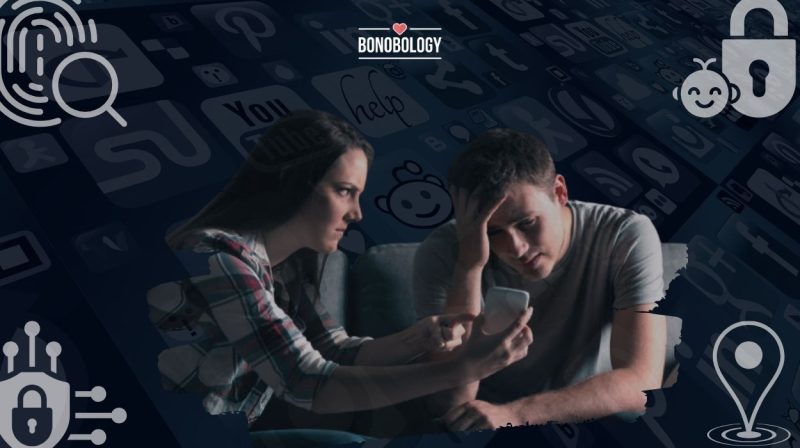

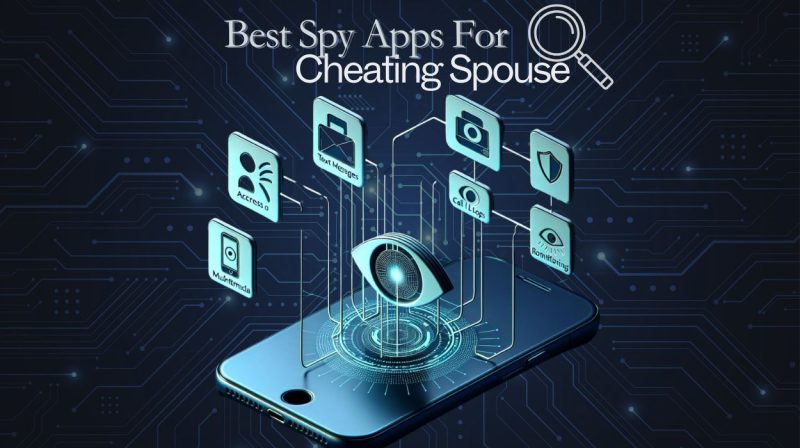






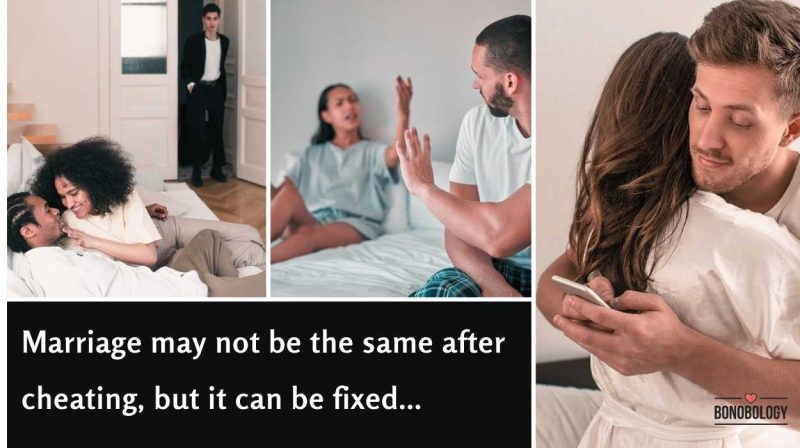

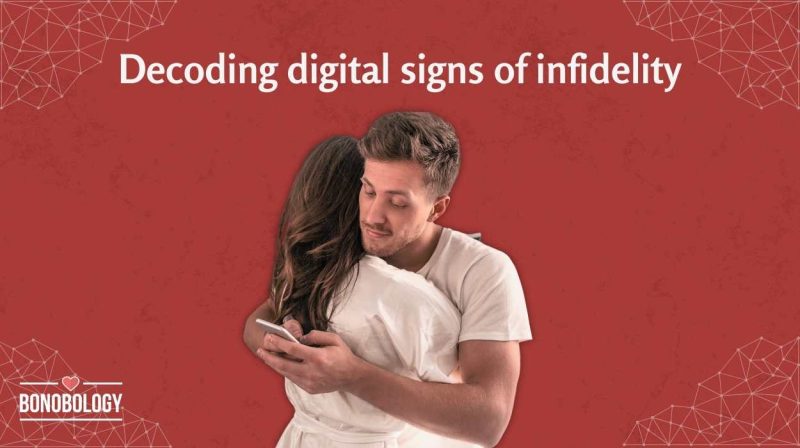
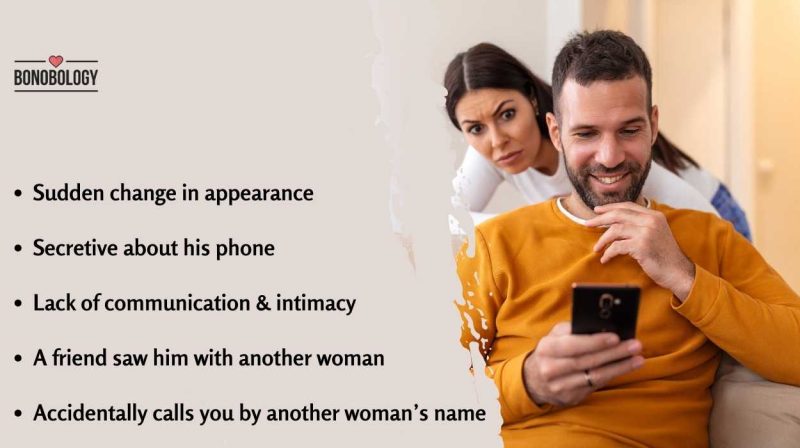
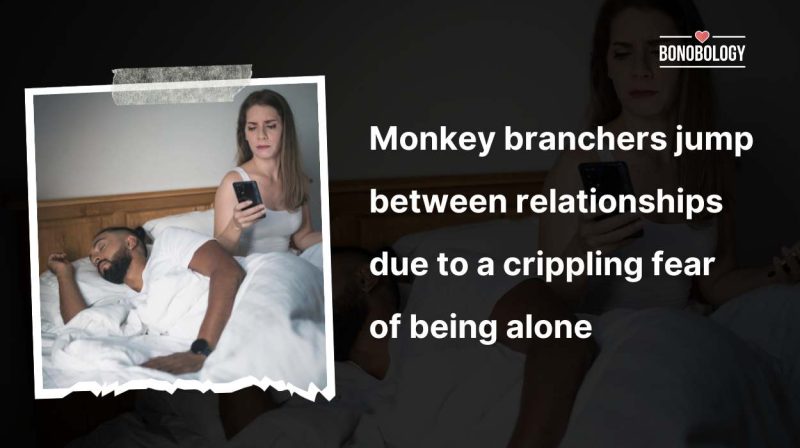

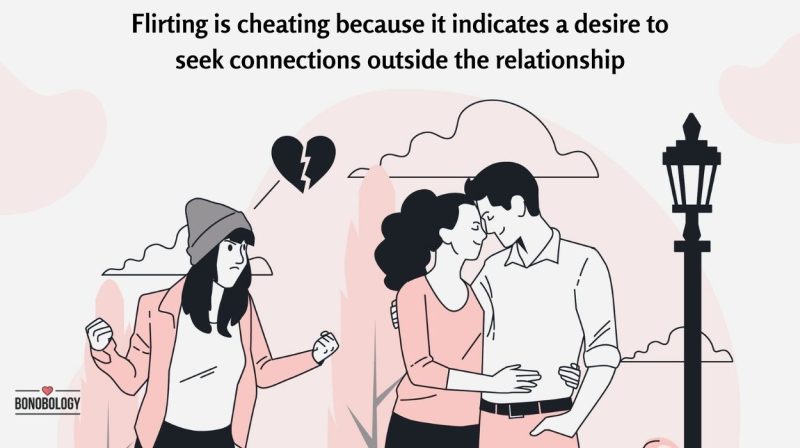



I havent heard of this phenomenon but reading about it made me wonder too! And you are right in saying that emotional fidelity is also something to be considered. While just meeting may seem harmless, one is doing it on the sly and that in itself presents the conundrum!
Sometimes it could be due to plain curiosity too..just to know if what’s that ex is up to these days 😀 Interesting read. Keep them coming.
This is unfortunately a very true fact about dating websites and “reunion” ones. It’s honestly just a shame, and I’m of the opinion that, of someone were happy in their relationship, they wouldn’t need to be on those sites. That’s just my own opinion, though.
Thanks for the informative article keep it up because you just passed a meaningful things